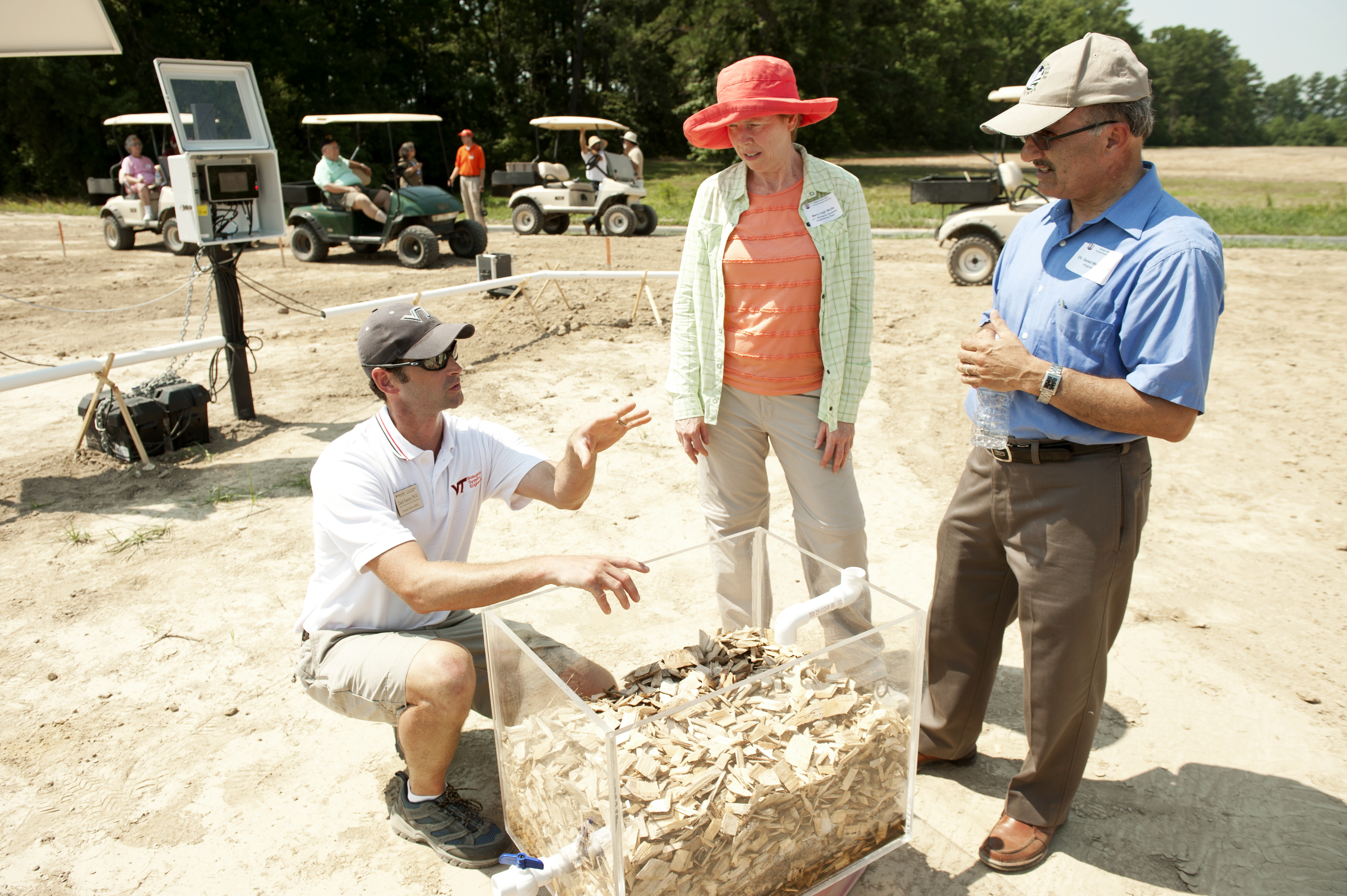Scientists receive more than $2 million to study effects of climate change on the Chesapeake Bay

The history of the Chesapeake Bay tells the history of the environmental movement itself, from its beginnings as a burgeoning social cause in the 1970s to a full-fledged national environmental initiative. As the nation’s largest estuary, it is a living laboratory to study the effects of weather and pollution on delicate ecosystems.
Zach Easton, assistant professor of biological systems engineering in the College of Agriculture and Life Sciences and the College of Engineering, was recently awarded two grants from the National Science Foundation to examine the effects of climate change on water quality in the Chesapeake Bay.
He says he hopes to clarify the implications of continued threats on the iconic body of water such as nutrient runoff from agricultural lands, urban sprawl, and climate change itself.
“The fact that the study area for these two grants are in the same region speaks to the importance the nation has assigned to the Chesapeake Bay,” said Easton, who is also a Virginia Cooperative Extension specialist.
Easton is the principal investigator of a $600,000 Water Sustainability and Climate grant and will be leading a team with members from Virginia Tech, including David Sample, also in the Department of Biological Systems Engineering; Darrell Bosh in the Department of Agricultural and Applied Economics; Penn State; and the University of Maryland Center for Environmental Science.
He is also a co-principal investigator of another $1.5 million Water Sustainability and Climate grant led by Johns Hopkins University. Both of the grants seek to understand the ways the Chesapeake Bay could be threatened as a water and food source in the coming decades by climate change.
The grants are unique in that they take a multidisciplinary approach to answer the ongoing questions of how the impacts of manmade stressors such as agricultural use and burgeoning populations work in concert with a warming planet on water systems.
The first grant will identify key climate, hydrologic, estuarine, and economic drivers at different scales to provide water management options for the Chesapeake Bay water system. The project will also train young scientists to become capable of understanding and managing complex water systems.
For the second grant, the research team is expanding the ecological concept of phenology, or seasonal lifecycle events, such as trees flowering, to seasonal events in water system processes. The project approach involves simultaneous collaborative and integrated activities by research teams that span the social and biological sciences in three areas: economics and policy, watershed management, and estuary research.
“When these studies are over, we will hopefully be able to show policymakers what tradeoffs exist in mitigating the effects of climate change across a broad spectrum of factors that run the gamut from social science to watershed modeling to infrastructure,” Easton said.






